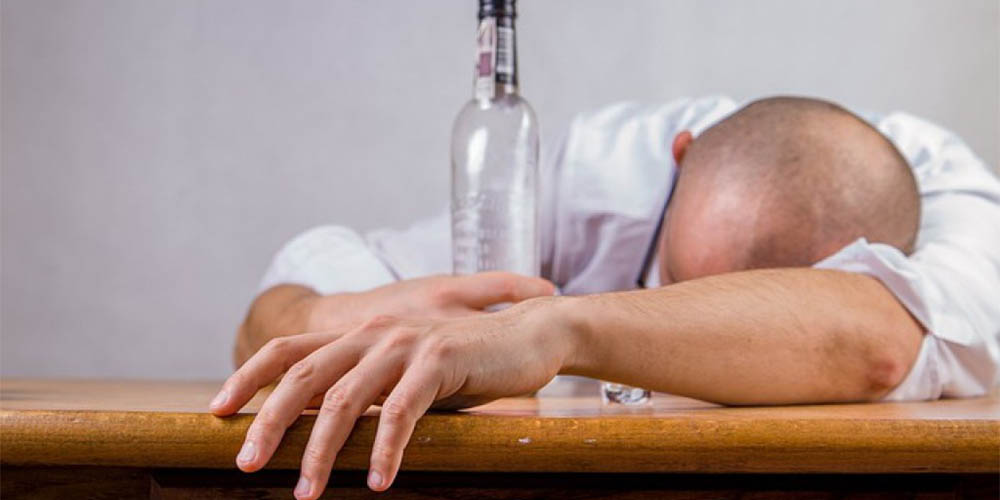At his peak, James Cato Ferguson, a California attorney, was drinking 32 ounces of hard liquor in a 24-hour period.
“My name is Jim Ferguson. I’m an alcoholic. I was diagnosed as such July 16, 2007 when I entered the Betty Ford Center,” he said calmly in a telephone interview with Health Central.
The 58-year-old former mayor of Palm Desert was diagnosed with type 2 diabetes two months later.
“There is a nasty inner relationship between alcoholism and diabetes,” he said. “I’m not a doctor but you can tell by the dates I’m just a little over 10 years in garnering a PhD in addiction studies.”
And, he is right, according to health experts.
Too much alcohol can cause chronic inflammation of the pancreas (pancreatitis), which can impair its ability to secrete insulin, ultimately leading to diabetes. If you already have diabetes, alcohol is even more dangerous because if your liver (the organ that stores your glucose supply) gets damaged, your glucose levels may become unsteady and put you at risk for hypoglycemia, according to Health Central.
“My liver was working at capacity,” Fergusons said. “My liver enzymes were off the charts. That’s an indication your liver is not doing well. Most people who die of alcohol-related causes don’t die of drunken driving or falling off the roof while trying to clean leaves out of the gutter or some other dumb thing. They die from cirrhosis of the liver.”
Chronic use of alcohol is considered to be a potential risk factor for the incidence of type 2 diabetes, which causes insulin resistance and pancreatic β-cell dysfunction that is a prerequisite for the development of diabetes, according to the U.S. Library of Medicine National Institutes of Health.
“There is no cure for alcoholism,” Ferguson said. “You can only manage it. Diabetes is the same way. It is a chronic disease.”
He started drinking recreationally in college for fun and to forget his inhibitions and insecurities. He also said there is a “direct link” between his drinking and early childhood trauma, which he declined to specify. He stopped drinking in law school but while working 16-hour days as a lobbyist in Washington, D.C., where he was courted with drinks and dinner. By the time he was in his 40s, he said it was “medically necessary to manage life.”
Today, managing both his alcoholism and diabetes is constant work.
He has had no alcohol to drink for seven of the past 10 years, he said. He has had an “ongoing relationship” with the Betty Ford Center in Rancho Mirage, California where he has sought both in-patient and outpatient help. Ferguson said he has also sought help at “multiple” other treatment facilities but declined to name them.
The constant drinking took a devastating toll on not only his personal life but also his professional life. It also began to rob him of his good health. His reputation was sullied, his marriage dissolved and he lost longtime friends.
“I kept thinking I could understand this problem and take care of it,” Ferguson said. “I’m a lawyer. That’s what people pay me to do and I just assumed I could. One of the biggest things I’ve learned is that I can’t. It doesn’t matter how smart I am about alcoholism, unless I’m willing to give up control of my life I can’t gain control of my life.”
He has lost feeling his toes due to diabetic neuropathy, nerve damage often associated with diabetes. Symptoms include pain, a pins-and-needles sensation, numbness, and weakness. He receives at least two weekly massages to help ease the symptoms.
If that is the only physical damage the drinking and diabetes have taken on Ferguson, he considers himself a lucky man.
“My alcoholism got to the point where it wrecked my life quickly enough that I did not get a lot these internal organ problems,” Ferguson said. “My liver enzymes went back to normal. My pancreas is now normal. My systems are all back to normal except my brain, which still wants alcohol. I can drive by a beer truck and want to go in and get a beer because I love the taste of beer.”
Most people who consume alcohol do not suffer damage to the liver, but heavy alcohol use over several years can cause chronic injury to the liver. For women, consuming two to three drinks — including beer and wine — per day and for men, three to four drinks per day, can lead to liver damage and cirrhosis.
Ferguson said he currently takes four oral medications to help control his diabetes. And, he freely acknowledges that he does not exercise “like I should.”
“My name is Jim Ferguson. I’m an alcoholic.”
Editor’s Note: This story first appeared on HealthCentral.com.







